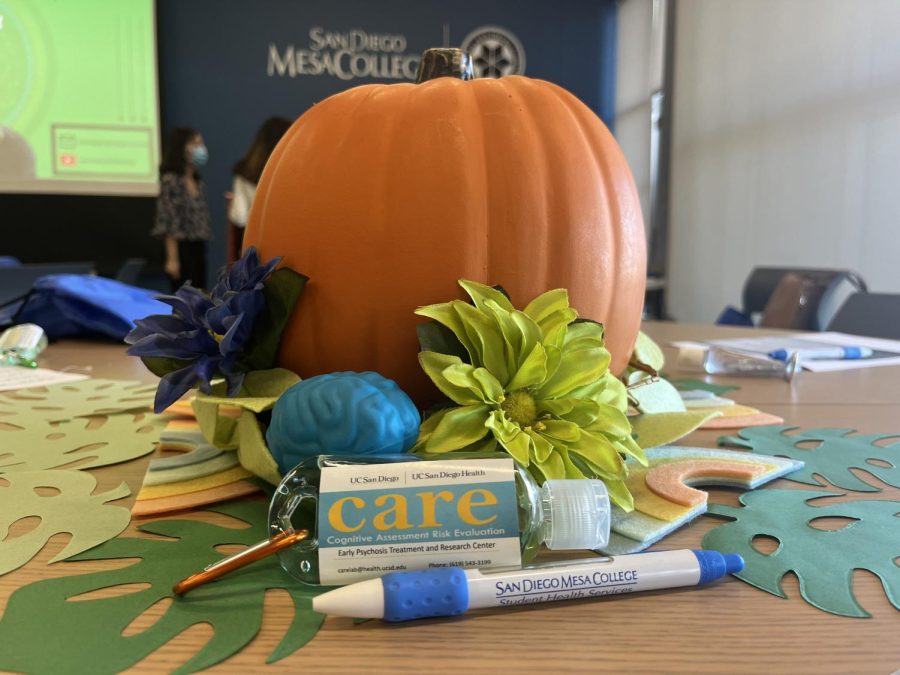The San Diego Mesa College Student Health Center hosted the Early Signs of Psychosis event, which addressed stigmas and how to provide recourses to students diagnosed with mental illnesses. The UCSD CARE research team presented what psychosis was and explained how to recognize the early warning signs.
According to Dr. Donna Corbett, a licensed psychologist specializing in early psychosis treatment and intervention said, the early warning signs are changes in unusual thoughts, perceptual disturbances, and behavioral changes. For example, not knowing what’s real or not, hearing sounds/buzzing in the ear, social isolation and change in hygiene.
“The chance of psychosis in the general population is one out of 100 if the first-degree parent has it, it’s one of 10. If a sibling has it, I think it’s like 40% chance,” said Dr. Corbett.
Most of the population with early signs of psychosis are young adults going off to college that has tried drugs for the first time and are under a lot of stress, according to Dr. Heline Mirakhanian the Clinical Director of the CARE Early Psychosis Clinic.
Dr. Mirakhanian addressed that individuals diagnosed with mental health illnesses don’t seek treatment because of the stigma associated with seeking help. She then added, “It is important that you have a student in your office to identify whether they have any other support. So one important research finding we have is that if the individual like a patient has family support, that their prognosis and overall treatment will be much more positive.”
Wendy Zhang a Ph.D. student in the SDSU/UCSD Joint Doctoral Program in Clinical Psychology went into more detail about different types of stigmas associated with mental health illnesses.
“It all starts with that ugly label and it’s not just an ugly label, it’s a sticky label, we know that the adverse effects of stigma are very persistent and powerful. People actually talk about mental illness as a double jeopardy because the individuals who experience the mental illness, not only have to deal with the mental illness itself but also the stigma that comes with it, and sometimes the stigma can be more detrimental than the illness,” said Zhang.
When an observer asked Zhang how Mesa can better support students experiencing mental health stigmas, she said, combatting stigmas, educating ourselves and others about myths versus facts regarding mental health, increasing awareness, shifting perspectives and empowering those who may have been subjected to self-stigma.
“It’s just has this overwhelming experience that I am surrounded by my mental illness, that’s all I am. But the matter of the true truth of the matter is mental health illness can just be a small part of one’s identity. So part of that empowering process is really to highlight a person’s strengths values, interests and hobbies, and to build social connections,” Zhang adds.




